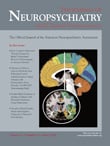Clinical Neuropsychology in the Criminal Forensic Setting
It may appear obvious to psychiatrists and psychologists that the various brain diseases interfere with cognition, mood, and impulse control, but this is not so obvious to the general public who may sit on juries or to prosecutors who work on the assumption that we are all endowed with the same degree of free will. How then may one proceed? Clearly some sort of guidance is needed for those who presume to inform the court. There are a number of good textbooks available, including the encyclopedic British work of John Gunn and Pamela J. Taylor, Forensic Psychiatry: Clinical, Legal and Ethical Issues (Butterworth-Heinemann Ltd, Oxford, England, 1993) or the more succinct American text by Paul S. Applebaum and Thomas G. Gutheil, Clinical Handbook of Psychiatry and the Law (Williams & Wilkins, Baltimore 1991); however, Clinical Neuropsychology in the Criminal Forensic Setting is a scholarly text focused on neuropsychological testing, constitutional principles, and the clinical method, with abundant references to case law.
Although specifically addressing criminal law, the methods of determining impairment, competency, dangerousness, and malingering are issues that relate to all branches of forensic practice.
Anyone, psychiatrist, neurologist, neuropsychiatrist, or neuropsychologist, entering the arena of criminal law should own this book. It begins with a discussion of the constitutional, judicial, and practice foundations of criminal forensic neuropsychology and moves on to ethical issues, admissibility of evidence, competency, insanity, culpability, and mitigation. The liberal references to the various laws in question, both state and federal, inform the reader of the many factors involved. Included is a discussion of the Daubert standard by which the court may exclude an expert’s opinions if the opinions do not meet the evolving standards for testimony. Codified as rule 702 this now reads: “If scientific, technical, or other specialized knowledge will assist the trier-of-fact to understand the evidence or to determine a fact in issue, a witness qualified as an expert by knowledge, skill, experience, training, or education may testify thereto in the form of an opinion or otherwise if (1) the testimony is based upon sufficient facts or data, (2) the testimony is product of reliable principles and methods, and (3) the witness has applied the principle and methods reliably to the facts of the case” (p. 71). An expert must conform to these principles to be heard. Included are formats for forensic neuropsychological assessments, written reports as well as hints for courtroom testimony, including how to handle cross-examination. The juvenile justice system is also specifically addressed, as this is quite different from the adult system in many aspects. It is remarkable that only in 2005 the Supreme Court ruled that juveniles were not eligible to be executed (Roper v. Simmons, 543 U.S. 551).
I recommend this book to anyone who may provide reports or testimony in a legal case, whether it be a disability determination, divorce and custody hearings, competence to refuse treatment, ability to make a will or a confession, or a matter involving the death penalty. Although specifically written for neuropsychologists, this excellent text would benefit any medical expert called upon to render an opinion where the law is involved.



